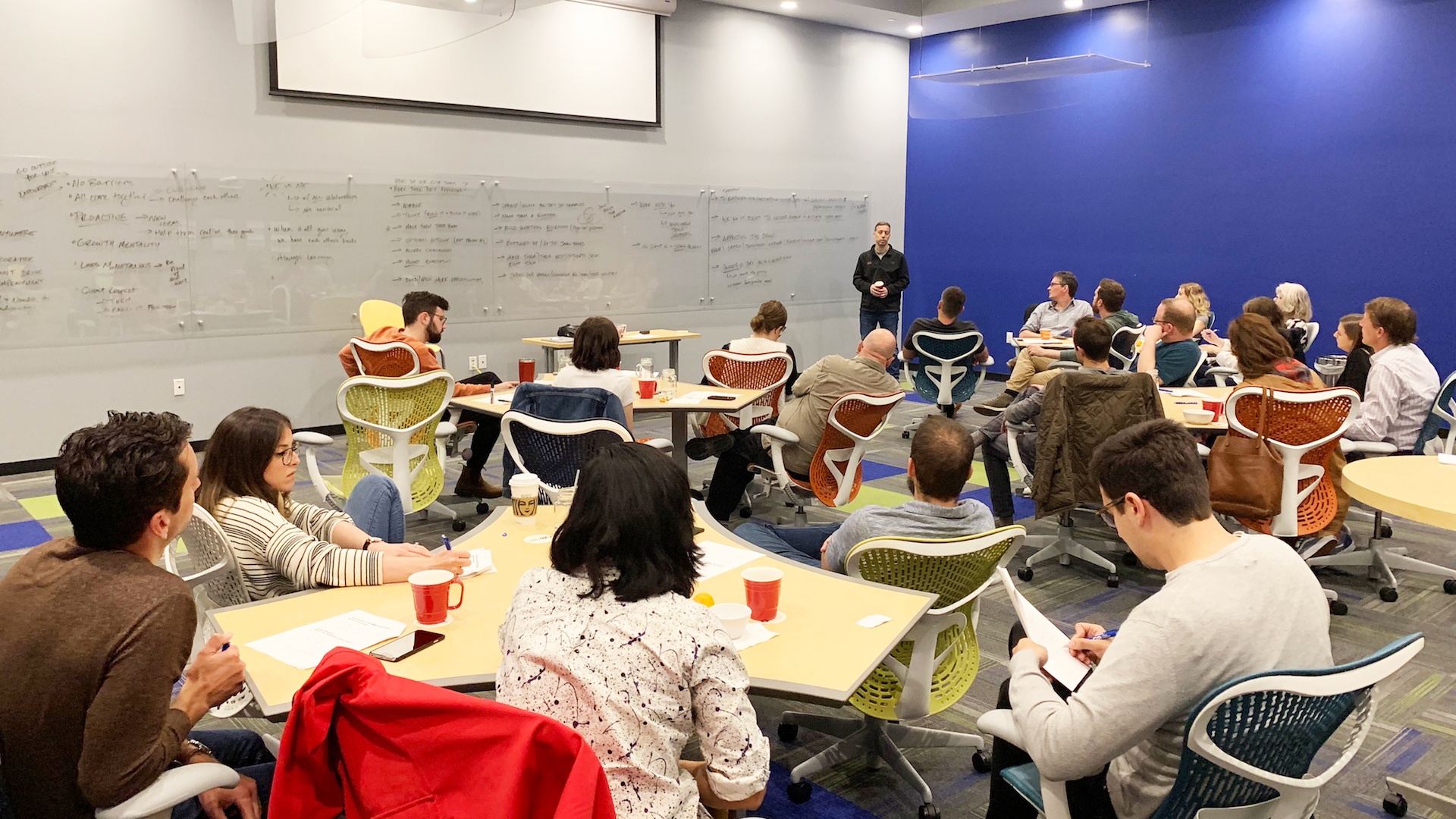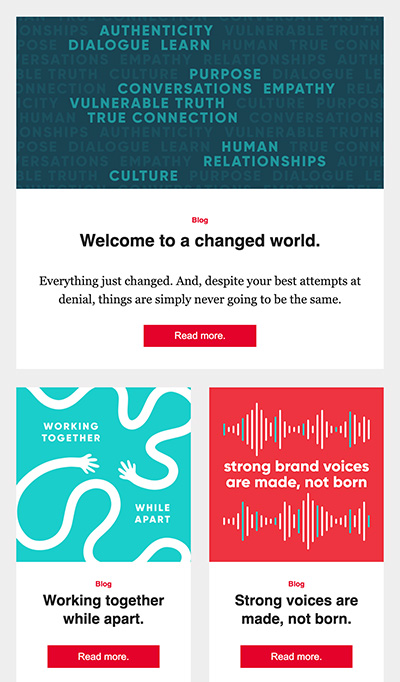Culture is a set of habits
Culture isn’t an abstract concept. Culture is a habit.

Culture. It’s yet another word that has lost meaning in the ocean of corporate platitudes. Some use it as a synonym for “work atmosphere.” Others just throw any old word in front of “Culture” to make themselves sound like a cutting-edge company.
Words like Dynamic. Purposeful. Fun. Challenge-driven.
Really begs the question: what in the hell are we all actually talking about? Is it a feeling? Is it a state of being? Is it a set of standards? Or is it just a bunch of BS built around something intangible and abstract?
Or, worse than any of the above, is it something invented/created by an outside branding firm (yep, like ours) that has no basis in reality?
To be 100% transparent, I was one of those who hijacked the word for the longest time — for us and on behalf of clients. Yes, of course we always had a culture. But it only existed in the hearts and minds of those who lived it over several years. The more we scaled and brought on new people, the more we lost it — or, more accurately, the more it became clear we never really had it.
So we embarked upon a long journey (read: struggle) to define what we’re all about. Truth be told, I entered the exercise extremely skeptical of its impact. Today, I am not only a believer in its power; I am also its biggest advocate. So much so that it’s now a fundamental part of what we bring to clients to help them build and sustain strong brand experiences.
I now realize that culture isn’t an abstract concept. Culture is a habit.

How we got there
We defined it. Together.
Through a series of retreats, breakout sessions, and iterations, we discovered who we were as a company. Our purpose. Our values. Our vision. All defined and written. All debated and agreed upon. And all 100% our DNA.
We built it into our world.
The walls. The artifacts. The internal communications. It doesn’t merely need to be captured. It needs to be infused in a way that maybe feels over the top. But that’s the only way things become habit and fact.
We practice it. Always.
We’ve built a number of activities and processes that reinforce our purpose and values. Some of these include:
- StoryFriday. A stand-up meeting where everyone shares a story that aligns with one (or more) of our core values. It is reinforcing and has us constantly looking for examples.
- GratiTuesday. A weekly meeting ONLY dedicated to gratitude. One simple question: what are you grateful for right now? Could be work-related, but it is generally life-related.
- PhreshThink. We take our craft and solve open-ended problems. What if we could do/change/impact anything? What would we do? How would we do it? This is a structured activity, keeping our values in mind.
- PhireEd. A full one-year curriculum to help everyone understand all facets of our complex business.
- Lunch and Learns. Bringing in outside speakers to add new perspectives and expertise, helping fuel curiosity and growth.
- Monthly Roundups. An open, transparent all-team meeting where we celebrate wins, discuss solutions, and open up the books so everyone knows the state of … well … everything.
- BonPhire. An annual grant award given to a deserving nonprofit the entire team votes on — and works on.
The more we practice, the more it becomes second nature. The more it becomes second nature, the more it influences every decision, every day.
We monitor it.
Yes. We monitor and notice. Sound a bit heavy-handed? Well, in order to practice values, we must be diligent in noticing and addressing when we don’t live up to them. We celebrate when we live up to our potential. We make sure we eliminate things when they fall outside the lines. Who monitors? Everyone.
We hire it.
We’re looking for those individuals who fit within our culture and can help take it to the next level. By knowing exactly who we are, we know precisely the type of people who can make us even more us-like.
We evolve it.
Purpose and values are not set in stone for the rest of time. Like our industry itself, we must continue to scrutinize, analyze, and pivot over time. Each time, we start with a retreat and ask the question, “We’re good, but how can we be even better?”
So, yes. My own personal leadership journey into the importance of culture has vastly transformed. I went from skeptical of the concept to champion of the process. Why? We are so much better in all categories and more certain of every decision. We believe in the work so much that we now feel it’s fundamental to extend brands to organizations’ cultures in a meaningful way.
It all starts with culture. Once you fully embrace what it means.


